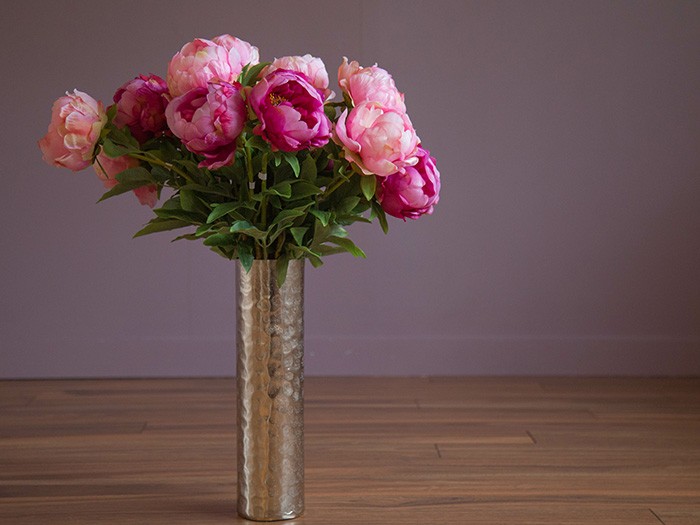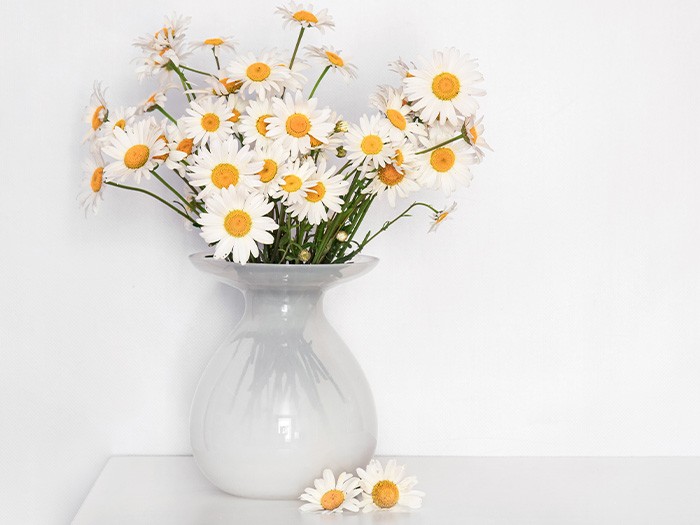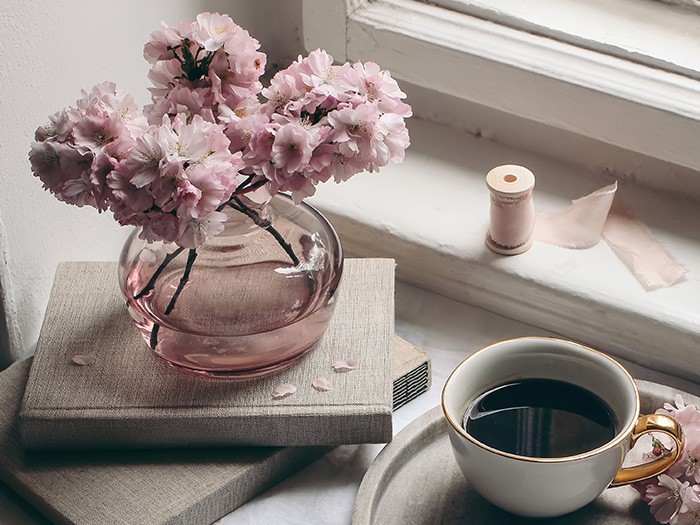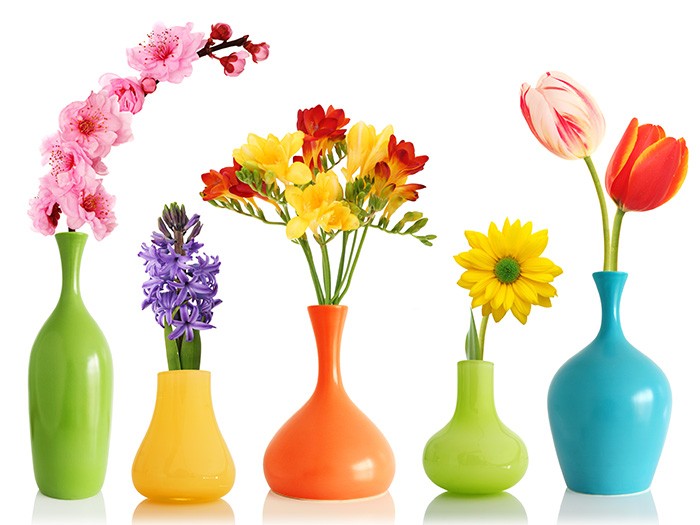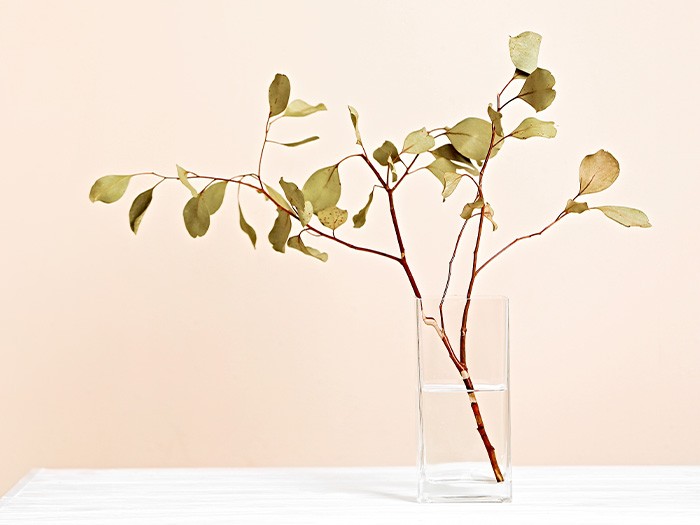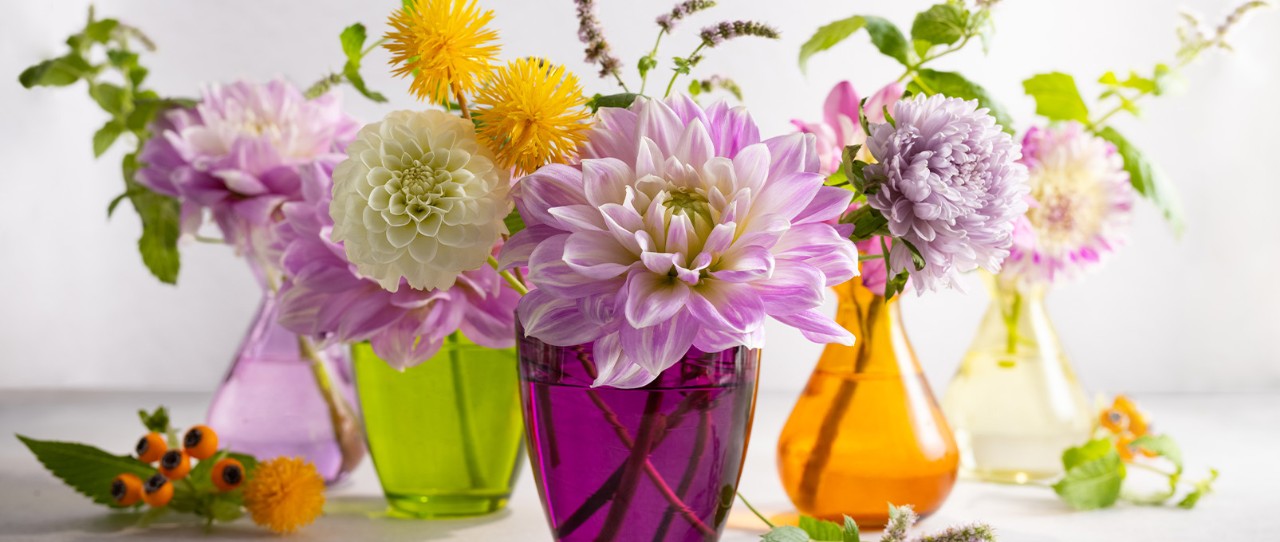Nothing perks up a room and makes it more inviting like fresh flowers. Whether cut from your own garden, picked up at your local farmer’s market, or an impulse buy at the grocery store, you simply can’t go wrong with a spray of pretty blooms.
While you don’t need a florist’s green thumb to spark joy with an arrangement, pairing the right flowers with the right vase will help arrangements look their best. (For example, if the vase opening is too wide, it might not provide enough support for the stems; if it’s too narrow, your flowers could look squished together or the stems could become damaged.)
Chances are you already have at least one of the following vase styles—so all you need are the flowers that are best suited for it.
